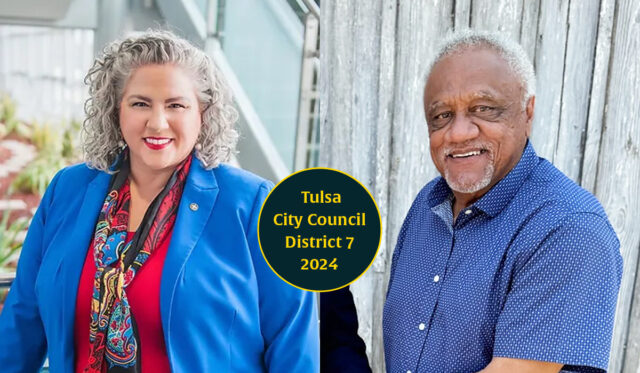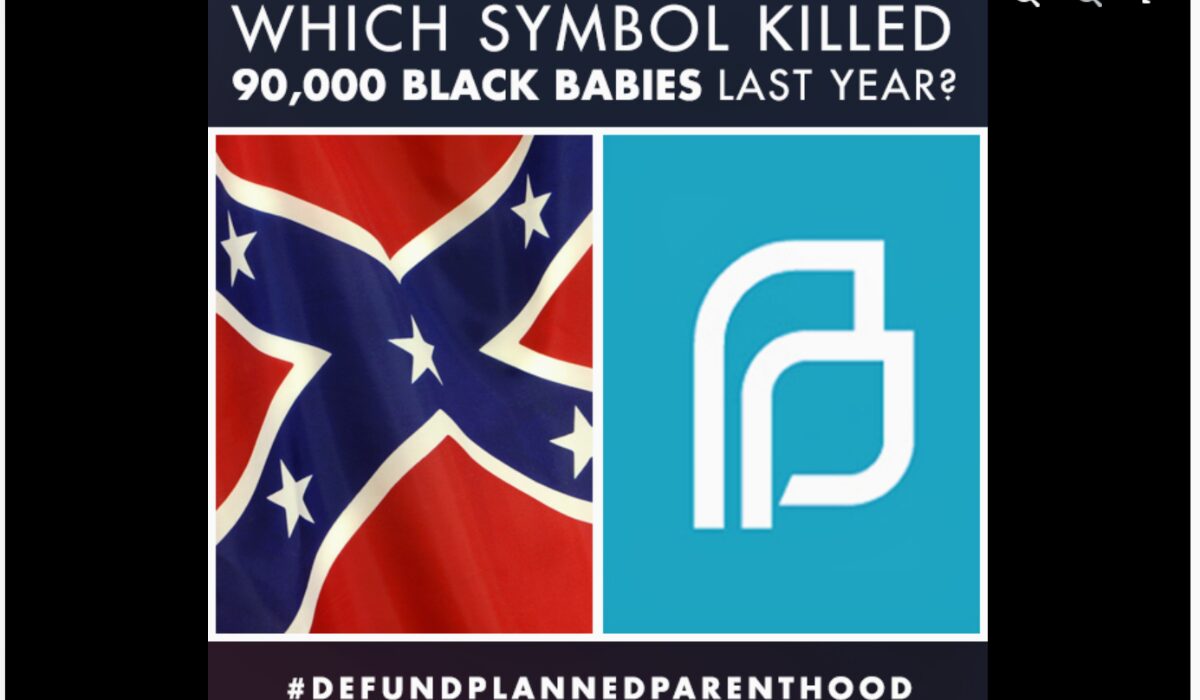
In the race to represent Tulsa City Council District 7, one candidate’s past controversial Facebook posts have resurfaced, and the incumbent is facing what she describes as personal attacks from her opponent’s supporters.
Displeased with the rhetoric, former KFAQ radio show host Eddie Huff and incumbent Lori Decter Wright each urge district voters to do their research before voting in the Nov. 5 municipal election.
Tulsa City Council District 7 covers southeast Tulsa, including portions of the Quail Ridge and Woodland Glens neighborhoods.
Wright, 49, relocated to Tulsa from San Fransisco in 2008 and has held the Tulsa City Council District 7 seat since 2018, serving three two-year terms. She and her husband formerly worked as professional opera singers before Wright transitioned careers into nonprofit leadership and social services. Wright is now the director and CEO of Tulsa Opera.
Although Wright said she has been challenged by conservative candidates in the past, she said her current opponent is the most “ideological and extreme.”
“I just have never seen attacks on my family or me, and that, I think is pretty low,” Wright said. “But when you have this person who’s well established as kind of this shock jock that says really wild things to get clicks and likes, I mean, why would we expect [him] to pivot just because they’re a candidate?”
Huff, 73, spent his childhood moving back and forth between Germany and the U.S. before settling in Tulsa in 1992. Huff worked as a missionary in multiple African ministries in Uganda and Kenya and founded Ugandan Mist, a coffee company that dedicates some proceeds to support primary and secondary schools for children in Uganda.
Huff was previously the co-host of The Pat Campbell Show, a Tulsa KFAQ radio program commenting on social and political topics. Huff is also the author of Y’all Have Sinned: How Blaming Others Is Not a Winning Strategy, in which he explains his ideology about Black Americans’ relationship with white people and racism, saying “it is the lack of forgiveness for those past sins that holds the descendants of African slaves in bondage today.”
Although his opponent called him “extreme,” Huff said he is not “some radical right-wing nut,” and said the way his critics characterize him is “just crazy.”
“They don’t know me, that’s all,” Huff said. “And I would say they think my ideals are too radically conservative, and it’s because theirs are too radically progressive.”
Huff talks controversy, Wright combats accusations

In the weeks leading up to the municipal election, articles from the Tulsa World and The Black Wall Street Times have drawn attention to multiple social media posts on Huff’s Facebook page, on which he has commented on subjects involving minority communities and controversial political ideologies.
On several occasions, Huff made controversial comments on Judaism, including an October 2023 post saying secular Jews have chosen to “align with anti-Christian entities.”
Huff posted several times in the wake of the 2015 Charleston church massacre, where white supremacist Dylann Roof shot and killed nine Black churchgoers and wounded another in hopes of starting a race war. Two weeks later, as South Carolina officials grappled over removing the Confederate flag from their state capitol, Huff created multiple posts about the flag and race wars.
“Looks like Dylan Roof may yet be successful in his aim of starting a race war,” Huff wrote in a July 2015 Facebook post responding to people waving Confederate flags along the path of then-president Barack Obama’s motorcade while he visited Oklahoma City. “The gist is that the (Ku Klux) Klan and others can get Black folks to do what they want with simple stimuli. Announce a march, burn a cross, wave a flag. (…) The simple solution would have been to ignore the flag, give it no press and watch it die.”
Huff was upset about the Black Wall Street Times article, saying that the publication was painting him out to be a “Nazi or a Nazi lover.”
“It calls me a Nazi, saying I supported the shooter and this and that (…) then [that] I supported the Confederate flag, and just the craziest stuff,” Huff said. “What makes me mad is the writer is a gay white guy, and the Black Wall Street Times, what are you doing having some white guy write about Black people in a Black periodical? That just kind of ticks me off, you know, that’s the kind of games these people play. (…) At least talk to me. Get the truth.”
Huff stands by most of his comments and said people appreciate him for speaking his mind, but he said media are taking his comments out of context.
“So that’s what people appreciated — that I’m not a follower,” Huff said. “This is what’s interesting, because I’ve called out the police, yet I have the endorsement of the [Fraternal Order of Police]. I call out this and that, yet the people can support me, because they know that I’m honest about my opinions. I just want to serve the people in my district, and I want to serve the people of the city, and I believe that Tulsa can be, again, one of the greatest cities in America.”
Outside of his controversial commentary, Huff said \ he is running for Tulsa City Council because Wright is too focused on liberal arts initiatives.
“She’s an opera singer, and she’s so involved with the whole entertainment community here and the higher society,” Huff said. “They’re always raising money for downtown and for the Performing Arts Center, and there’s so much that’s being neglected.”
Wright said part of the reason she focuses on downtown initiatives — along with her work on capital improvement projects, grant funding, and private investments — is because Tulsa’s downtown area contributes to a large part of the city’s revenue. She said that although downtown is a big part of District 7, it is not her only focus.
“I lead from the center, because that’s how you get work done,” Wright said. “All these accusations and things are just completely unfounded as far as downtown. I mean, every major city in America — which we are the 47th-largest city — has to have a thriving downtown. That’s where tourism dollars are driven.”
Wright said she has been criticized for not being from Tulsa, despite the fact that her opponent is also not from Tulsa.
“It’s really ironic, because quite frankly, my opponent this time was born in Germany,” Wright said. “Here’s where we do agree. We both chose Tulsa, right? We could have gone anywhere, clearly, and we chose Tulsa.”
Although the Tulsa City Council District 7 race is a nonpartisan election, Wright said her opponent and his supporters often condemn her for being “liberal.”
“For being accused (of) being a liberal or whatever, I don’t even know what that means,” Wright said. “Other than that, I’m very compassionate. I care about all kinds of people. I don’t discriminate. I don’t want to violate people’s constitutional rights. And I’m one of the most fiscally conservative city councilors at City Hall. I am always scrutinizing the dollars. I sit on the small budget committee. I’m always looking (for) how we can maximize our funds.”
Candidates focus on homelessness, panhandling
Echoing concerns voiced in every Tulsa 2024 municipal contest, Wright said homelessness is continuously identified as residents’ biggest concern on city surveys.
“I also represent southeast Tulsa, and at the time in 2018, we started to see more panhandling in our corridors and unsheltered homelessness in a way that we had not experienced outside of the downtown core,” Wright said. “And I was wondering, do people downtown even know this is going on out here? We had very little services available, and so that was one of the main reasons I ran for city council in 2018.”
A member of the Tulsa City Council’s Housing, Homelessness & Mental Health Task Force, Wright said her district’s high eviction rate is partially to blame for its homelessness issues. If reelected, Wright said she will continue to work with other Tulsa City Council members to find adequate housing solutions and make “upstream solution investments” in workforce developments and housing initiatives intended to prevent homelessness in the first place.
Also noticing the rise in panhandling and homelessness in Tulsa Council District 7, Huff took a drastically different stance on homelessness compared to his opponent, saying Tulsa has invited homelessness to increase with a new ordinance intended to protect street solicitors.
“All you’re doing is inviting more, more and more. You’re not trying to quell this. You’re just treating it. You’re inviting more. We’re literally becoming San Francisco, and that’s what I won’t let it become,” Huff said.
Huff said people may think he is being cruel, but he said he spent four years in Amsterdam working to help prostitutes and drug addicts, which gave him an outside perspective on the issue.
“I have a little slogan I use, ‘What you feed grows,'” Huff said. “I would quit feeding it. In other words, we’re spending a lot of money basically trying to take care of the homeless. I would spend less money on taking care of the homeless. In other words, make it harder to be homeless. We have several private organizations here in town that do that. (…) Yet so many of the homeless, they don’t want the help.”
Candidates note infrastructure issues, historic mayoral election
If elected, Huff said one of his top priorities would be to address Tulsa infrastructure, more specifically in increasing funding for street repairs and street widening.
“What’s so interesting about it is that my district is one of the two districts in the city that brings in the most revenue,” Huff said. “We have a big shopping mall in the city, right in my district [that is the] chief revenue generator. There’s a new mall over on the west side. (…) Yet our streets are just pathetic.”
Wright said she has been making efforts in street repairs and public transportation, saying some streets have not been maintained for more than 50 years.
“Walkability is a high concern,” she said. “We don’t have as many public transportation opportunities, and so we have a lot of seniors aging in place out here, and a lot of young families and a lot of minimum-wage workers without transportation. So, what are we doing on that? I’ve been advocating for a bus rapid-transit line to be on our South Memorial corridor.”
Along with agreeing that infrastructure must be addressed, both candidates acknowledged the national attention Tulsa has received around the centennial of the Tulsa Race Massacre and the possibility that the city would elect its first Black mayor in Rep. Monroe Nichols (D-Tulsa).
“We have the opportunity to have a Black mayor and three Black city councilors,” Huff said. “One third of the city council would be Black, and two of those would be in non-Black areas. So, it would really be something if that were to occur, because if you have a mayor and three Black city councilors for the city that is supposed to have this stain on it, I think it speaks well for the city.”
Wright said she has worked with both Nichols and Democratic County Commissioner Karen Keith, who are squaring off in an increasingly ugly campaign for mayor. Wright said her experiences working with each would offer her the opportunity to collaborate effectively with the mayor’s office and the Tulsa City Council.
“I think the nation is watching, and especially in this mayoral race, this runoff race, (…) either way it’s going to be historic,” Wright said. “The City of Tulsa has only had two woman mayors in the 100-year history of our city, and we’ve never had a Black mayor. So, either way, we’re making history on Nov. 5, and I have established myself as a consensus builder on the council and between the mayor’s office and the council. That’s the work I will continue to do, should I be reelected on Nov. 5.”






















